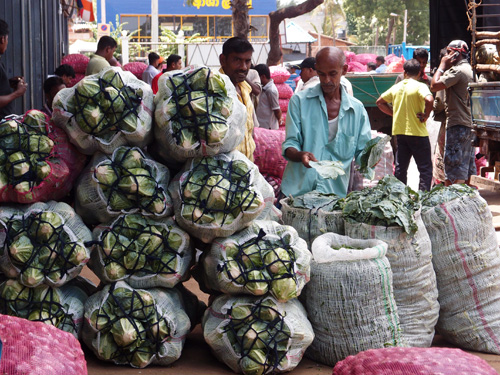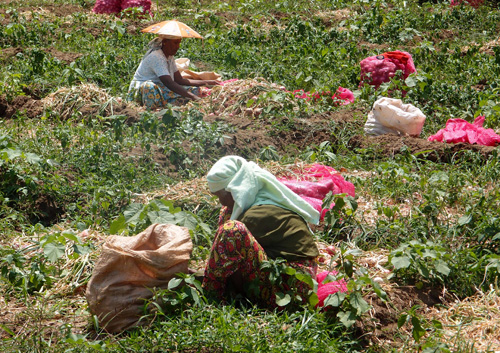
You probably use text messaging to Tweet your friends, classmates or colleagues. In the developing world, more and more people are exploring the “killer app” of messaging and related technologies to earn their livelihood and escape poverty.
Helping smallholder farmers in Southeast Asia to use information and communications technology (ICT) to improve their lot is the purpose of a new project involving U of G’s Helen Hambly.
This fall, the professor in the School of Environmental Design and Rural Development (SEDRD) made her first-ever visit to Sri Lanka under the three-year, $200,000 project funded by the Social Sciences and Humanities Research Council (SSHRC).
The project involving Canadian and Sri Lankan academics is led by Gordon Gow, director of the graduate program in communication and technology at the University of Alberta’s faculty of extension.
Gow invited Hambly a year ago to join the team. She teaches in SEDRD’s capacity development and extension program, and has worked with Farm Radio International and rural radio in Africa, notably in Ghana.
“Her work with Farm Radio International caught my eye,” says Gow, “and her work that connects agricultural extension to new communications technologies positions her as an excellent co-investigator.”
Text messaging – called short messaging systems (SMS) in developing countries – allows smallholder farmers to use cellphones to gain information for tending their small plots.

Says Hambly, “Farmers around the world have almost no access to a telephone main line, but they have pervasive use of cellphones. Text messaging is the killer app.”
For example, an extension service might text farmers about an upcoming field school on pesticide resistance in rice. Or producers might receive messages with crop management advice, weather information, availability of plants or livestock, or soil test results.
Podcasts may be archived on the internet for farmers to listen later. Interactive services would allow farmers to ask experts about a particular problem.
The team plans to establish texting and radio and extension services for farmers in the study area around Kandy in central Sri Lanka.
There and elsewhere in the country, farmers tend rice, vegetables and a few livestock animals on plots no larger than about two hectares.
“The goal is to develop a system of digital extension through integrated SMS radio and face-to-face services for resource-poor farmers.” The Guelph professor says the project will focus on women’s use of the technology.
Literacy levels are low for many rural residents in developing countries. “Voice and text messaging might be appropriate,” she says, adding that bringing extension services to farmers might help them diversify crops and livestock.
Hambly will use part of the SSHRC funding to pay for graduate student scholarships for the project, starting with a U of G master’s student this fall.
She visited Sri Lanka for a workshop held by the federal agriculture department and the University of Perediniya (two other Sri Lankan universities are also involved). “This is a real venture for me into an unknown area.”
She has discussed the project with SEDRD professor Jana Janakiram and Prof. Naresh Thevathasan, School of Environmental Sciences. Both originally from Sri Lanka, they have studied the use of cellphones to deliver agronomic information to farmers in southern India. Click here to read the At Guelph story.
In Sri Lanka, the new team will work with a regional ICT thinktank called LIRNEAsia (funded partly by the International Development Research Centre of Canada) and with Wayamba University.
The project also involves Frontline SMS, an American company that provides text messaging software.